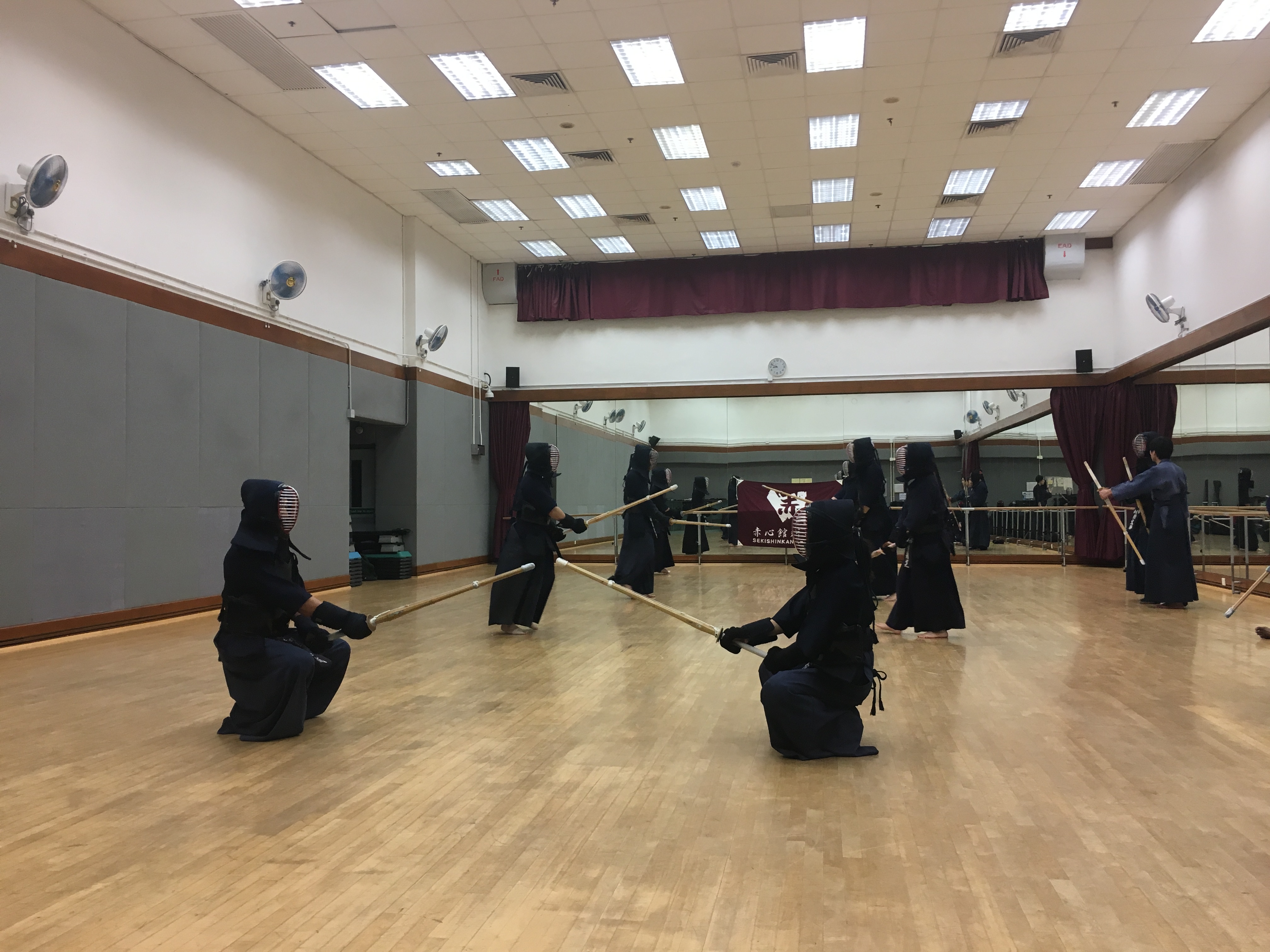Society for East Asian Anthropology
Jingyi Tian
February 26, 2020
For Hongkongers, kendo offers practice in the pursuit of self-cultivation and ethical work.
This piece is part of the SEAA series “An Anthropology of Ethics in East Asia.” The articles highlight different aspects of moral values and ethical practices in a range of Asian regions. They examine how individuals cope with societal changes such as environmental crises, nationalism, economic development, and mobility through lens of everyday ethics.
“Many people can’t control their egos in kendo. They hit one after one—pong, pong, pong! It’s pointless. This is where kendo mirrors their inner characters,” said a senior Hong Kong practitioner who has been practicing kendo, a Japanese combative martial art, consistently for more than five years. The practitioner told me that kendo helps him to cultivate a strong mind. Many practitioners had similar ethical reflections, which led me to ask, How does kendo serve as a tool of self-cultivation?
Hong Kong fans of Japanese culture are often drawn to the sport by the iconic image of samurai fashion. Although kendo is not the most popular sport in Japan (the All Japan Kendo Federation counted 1.8 million practitioners in 2017), the martial art is noteworthy because its practitioners devote themselves to the practice for years, even decades, in pursuit of moral self-cultivation. Like the man quoted above, many kendo practitioners regard kendo as a life practice (Cantonese: sau hang; Mandarin: xiu xing, 修行). This term has a strong connotation of spiritual exercise in Chinese, and an association with ascetic practices. It accurately reflects a feature of kendo—practitioners engage in a highly intensive, exhausting, and challenging combative activity that forces them to endure hardship and injuries. Yet, many dedicated practitioners are more than willing to endure such rigors.

The ideal status and traits of the better person produced through kendo practice vary from individual to individual. Practitioners have similar physical experiences, but their own interpretations and goals. Kendo works as a tool for personal growth for some practitioners. Others find kendo helpful in learning how to cultivate social relationships. I will highlight three examples to showcase the range of practitioners’ ethical desires: a financial trader who wants to become a person who can make sharp and accurate decisions at work through better control of his ego; a Christian who aims to practice compassion and love through kendo, which helps him to do a better job as a manager; and a young practitioner who seeks self-empowerment to cope with the harsh yet routinized work. They all have a telos in a Foucauldian sense, namely, a goal of pursuing an “ethical self”—a status or a state of being that they wish to achieve.
A financial trader
Edward is a financial trader in his forties. Before he began learning kendo, he read the book Gorinsho (TheBook of Five Rings), which is filled with stories of a famous Japanese swordsman, Musashi Miyamoto. Edward told me that both kendo and his job require making the right decision at the right moment under pressure. In kendo, a combatant needs to practice how to manage their fear or anxiety, which helps to build up inner power. Edward insists that kendo helps him make good decisions. In that sense, he believes that kendoinstills self-control and a tranquil mindset, both of which benefit his career. Although the inner power that practitioners seek is unlikely to solve all their worldly problems, their dedication to developing such power reflects their keen ethical aspirations.
A Christian
Christopher is a pious Christian and entrepreneur who opened his own business when he was in his forties. He adopted kendo as a training regimen that helps him learn how to get along well with his coworkers. Christopher has found that kendo’s moral messages align with his Christian beliefs—especially the call to show love and care in practice. When he spars with less experienced opponents, he tries to help them improve their kendo skills through courtesy, which he sees as another kind of training that he applies in his work life as well.
A young practitioner
Melissa is in her mid-twenties and works as a legal clerk. She told me that her routinized job made her feel powerless for not being able to make a difference. She wants to be more energetic and positive toward life, and kendo offers her a scheme in which she can transform herself.
To reach their goals, kendo combatants seek self-improvement and self-advancement through exhausting bodily practices that challenge their limits. They often trace kendo’s moral codes to Inazo Nitobe’s famous 1905 book, Bushidō:The Soul of Japan, which offers a genealogy of kendo’s moral framework that various practitioners’ find useful. Practitioners regard the moment they are faced with an attack as the moment to transcend their fear like a warrior; when presented with opportunity to initiate an attack, they practice self-control to repress the impulse. They strive to refine their inner selves in combat with a diligent attitude, and such refinement will not happen unless they keep practicing over the long term. In this process, physical combat not only trains the body but also constitutes ethical work, as the moment when one faces a challenge in combat is a good time to train “heart” (心). The written character of the heart is the same in Japanese (kokoro) and Chinese (Mandarin: xin; Cantonese: sam). In kendo culture, the heart represents inner power that can be obtained through training.
Although the inner power that practitioners seek is unlikely to solve all their worldly problems, their dedication to developing such power reflects their keen ethical aspirations. Recalling Michel Foucault’s theoretical reflections on ethics and self-formation, practitioners adopt the moral framework of kendo practice as a “technology of the self” through which they hope to transform themselves and attain an ideal state of being. Practitioners hold that kendo practice helps them find the weaknesses in their own characters and become better people.
The demand for self-cultivation through kendo reflects a larger neoliberal social milieu in Hong Kong where individuals are left to individually cope with intense pressure from their jobs, including finances, harsh demands in the workplace, and routinized work life. Kendo’s moral framework provides a means for practitioners to build up a strong mindset to cope with their anxiety and suggests a culture of the body that emphasizes self-reliance, self-improvement, adaptability, and individualism. Their experiences resonate with similar patterns of self-cultivation among practitioners of yoga, judo, wingchun, and taichi.
Joseph Alter’s study on yoga in India shows that middle-class yoga practitioners adopted yoga practice as a spiritual antidote to the anxiety and pressure in their fast-paced capitalistic lifestyle. This work has inspired other scholars to contextualize bodily practices within a larger socio-moral landscape. The case of Hong Kong kendo practitioners suggests that kendo’s moral framework is particularly appealing to middle-class practitioners who experience extraordinary pressures in daily work life and culture.
Cite as: Tian, Jingyi. 2020. “Cultivating the Ethical Self in the Way of the Sword.” Anthropology News website, February 26, 2020. DOI: 10.1111/AN.1356
Copyright [2020] American Anthropological Association




